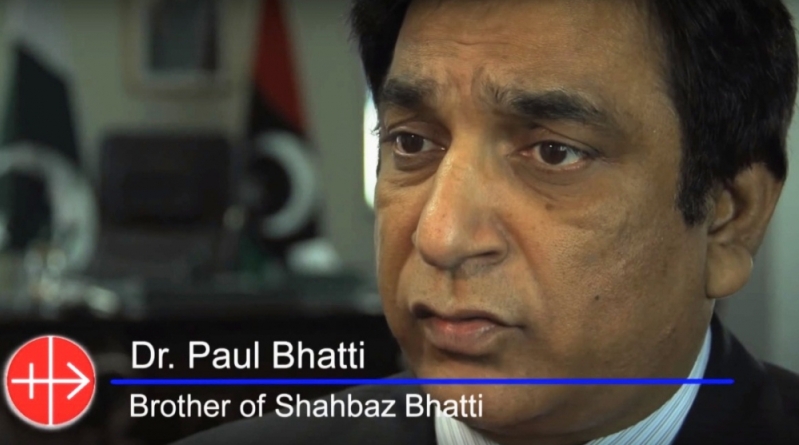
Five years after the murder of a Pakistani Christian politician, his brother is continuing to fight against the country's harsh blasphemy laws, which have caused the deaths and unjust incarceration of scores of people.
On Mar. 2, 2011, Pakistan's first Christian minister of minority affairs, Shahbaz Bhatti, was shot and killed by a Muslim extremist group after being accused of blasphemy, or desecrating the Koran.
Following the assassination, Bhatti's brother, Paul Bhatti, founded a trust in his brother's name and then was himself appointed the minister for national harmony and minority affairs.
"My life and profession changed after the assassination of my brother," Bhatti, a former surgeon, told Religion News Service.
"That was a situation I never expected to be in," he added calmly. "I was not aspiring to be a politician, but it happened. I think God's ways are different, and it happened."
Paul is seeking to repeal Pakistan's stringent blasphemy laws, which often carry life in prison or the death penalty as punishment. Often, the laws are used to reinforce the oppression of groups and individuals that are already marginalized -- particularly Christians, who make up just 4% of the country's population.
He told the news outlet that Christians in Pakistan are being persecuted because of the wrong assumption that their actions are aligned with Western nations.
"The West is considered like a Christian, and Christian people somehow seem to represent the West," he said. "A lot of people have hatred in their hearts against the West."
He added, "Some of the innocent Muslims who don't have the possibility of engaging with Christians or other minorities genuinely believe that Christians or other religions are their enemy, because they're told by some people."
Pakistan, the world's second largest Muslim country, is ranked #6 on the Open Doors 2016 World Watch List of the worst persecutors of Christians, and has received the maximum score in the violence category.
Engage, a nonprofit based out of Islamabad, Pakistan, has also launched a new campaign seeking to challenge the legality of the country's blasphemy laws.
The group, which is made up of religious academics, lawyers, a psychologist and development sector professionals, hopes to raise $2,500 to help "deconstruct religious law through a framework that is not alien to its defendants and open dialogue through channels that have credence within the system."
"The law...holds that anyone convicted of the offense of blasphemy against the prophet Muhammad is to be awarded a fixed death penalty, with no possibility of a pardon or waiver," the CrowdDefend campaign website reads.
"The reality of living under the blasphemy laws is this: as a Christian, for an alleged blasphemous utterance in a casual conversation with a friend, you can expect the death sentence, and also the torching of over a hundred homes in your Christian community by mobs," the group reveals. "The reality is Pakistan today is scary - Minors and the mentally disabled are being charged. Muslim judges who acquit Christians of blasphemy are being assassinated. Vigilante groups are torturing and murdering anyone who is so much as rumored to have desecrated the Quran."
The group adds that since the introduction of a more stringent form of the law, blasphemy accusations increased by a shocking 17500%.
"This staggering increase in the number of individuals accused of the offence shows that the law has been used as a tool of persecution and oppression," the group notes. "People did not simply become dramatically more 'blasphemous'. Rather, these numbers show that the blasphemy law has been understood to be a viable legal means to target groups and individuals, and has been used as such."







